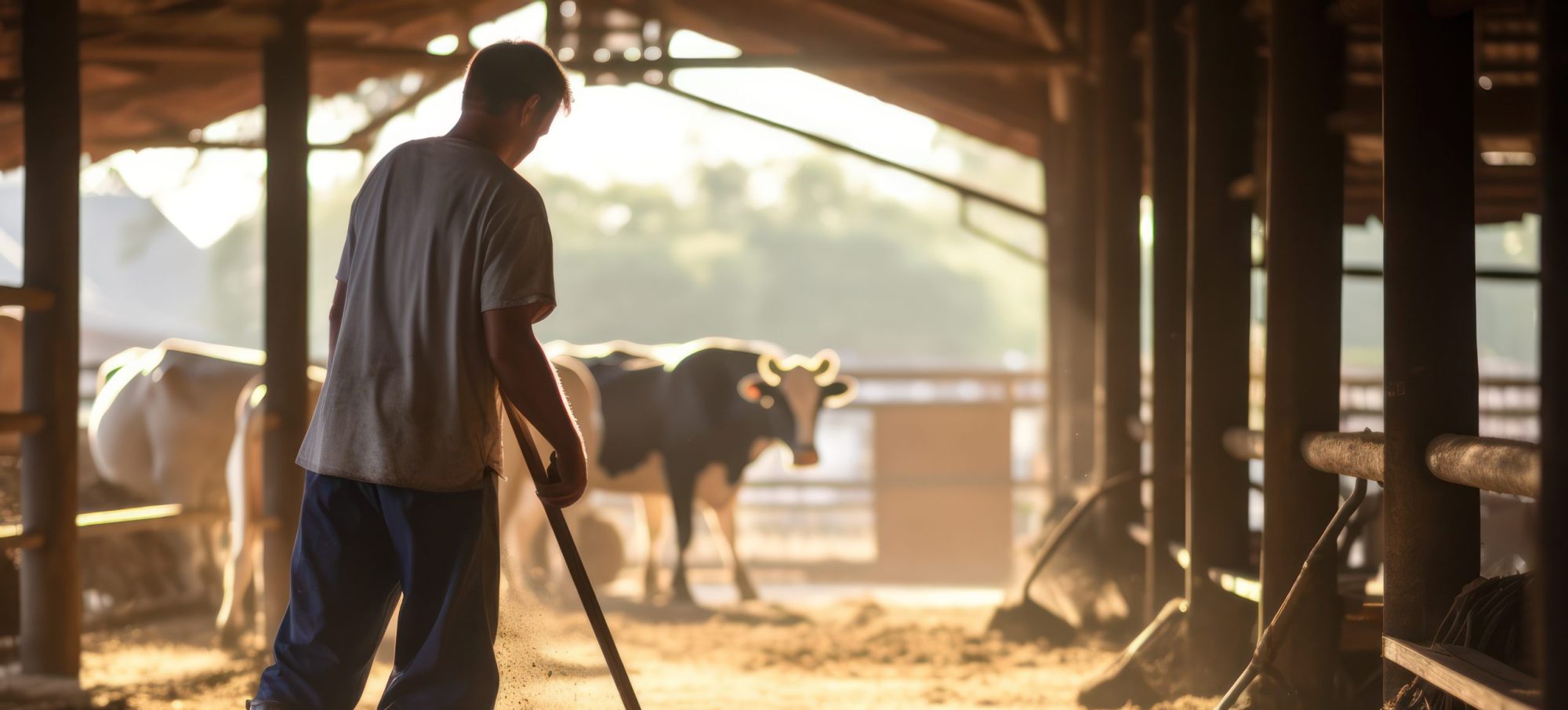
Farming and ranching can be stressful occupations, and that stress can have a multifaceted effect on a person. There are numerous uncontrollable factors, such as unpredictable weather, untimely equipment breakdowns, time constraints, and financial markets, that cause stress in the lives of farm families. Stress is a physical response to perceived life-threatening events. In an evolutionary sense, it allows us to determine whether we should stop and fight or flee from an external threat. Our brains do not recognize the difference between psychological or physical threats, and therefore our bodies respond in the same fashion to something we perceive as negative, overwhelming, or threatening, irrespective of the real risk to physical well-being. Each person reacts differently to stress, but some common symptoms of chronic stress include changes in a person’s sleep patterns, fluctuation in a person’s weight, fatigue, restlessness, and physical health conditions such as headaches, ulcers, or high blood pressure. Besides the physical effects, stress can also hinder interpersonal relationships at work and home.
Chronic and uncontrolled stress can be detrimental to your health and interpersonal relationships. It might not be possible to get rid of the things causing stress in your life, but there are things you can do to help manage the stress. The following are some simple ways that a person can decrease stress:
- Exercise: Many farmers feel that the physical labor that they do on the farm is enough, but having a regular exercise or stretching program provides a break in your daily routine, benefits your overall health, and provides a constructive way to relieve excess energy. Strive to exercise three times per week for a minimum of 30 minutes.
- Caffeine: Reduce or eliminate caffeine from your diet. By eliminating this stimulant, a person may have reduced headaches, increased relaxation, improved sleep, a calmer mood—and, counterintuitively, more energy.
- Humor: The old adage “laughter is the best medicine” isn’t inaccurate—laughter might help to reduce your stress, so explore ways (social groups, books, and so on) to add some laughter to your life.
- Talking: Having a strong network of friends and family can help provide necessary support during stressful times. Make sure that you have a couple of people to whom you can vent your problems to help reduce built up stress.
- Relaxation Techniques: There are simple relaxation techniques that can help you clear your mind and reduce tension. Techniques include deep breathing and taking mini-breaks during the day.
- Sleep: If you are not getting enough sleep at night to be refreshed in the morning and energetic enough for the day, then you may need to consider a midday power nap.
- Nutrition: Make sure that you are eating balanced meals throughout the day.
- Breaks: Take some time from the stressful situation by going for a walk, spending some time alone, working on a hobby, meditating, and so on.
Getting Help
There are times when things get too difficult, and you might need professional help. Professional help can include your family physician or health care provider, a mental health professional, or a support group. Listed below are some signs that indicate that you should seek professional help:
- Depression
- Changed sleeping patterns
- Abusive behavior
- Suicidal thoughts
- Hallucinations
- Consideration of changes in your marital status
- Inability to express positive feelings
- Excessive alcohol intake
- Feelings of guilt, isolation, panic, or being overwhelmed
Resources
For more detailed information, consult the following sources:
-
Manage Stress to Increase Farm Safety – Safe Farm, Iowa State University Extension and Outreach
-
Coping with Rural Stress from the University of Minnesota Extension
-
Getting for difficult times series through the University of Minnesota Extension
-
Stress Resources from the University of Wyoming
-
Managing Stress during Tough Times from Colorado State University Extension
-
Stress Management from Extension Alabama A & M and Auburn
Use the following format to cite this article:
Production agriculture and stress. (2021) Ag Safety and Health Community of Practice. Retrieved from http://articles.extension.org/pages/70313/production-agriculture-and-stress.
Sources
Fetsch, R. (2011) Farming, ranching: Health hazard or opportunity? Colorado State University Extension. Retrieved from http://extension.colostate.edu/docs/pubs/consumer/10201.pdf.
Jolly, C. & Miller, L. (2004) Manage stress to increase farm safety. Safe Farm Promoting Agricultural Health and Safety – Iowa State University Extension. Retrieved from https://store.extension.iastate.edu/ItemDetail.aspx?ProductID=4617.
Webster, J. and Gonzalez, M. (n.d.) Mental health and stress management. Agricultural Health and Safety Fact Sheet AHS-09. Utah State University Cooperative Extension. Retrieved from http://extension.usu.edu/files/publications/factsheet/AHS-09.pdf.
Weigel, R. (n.d.) Identifying stress on the ranch and farm. Agricultural Producers and Stress. University of Wyoming Cooperative Extension Service. Retrieved from http://www.wyomingextension.org/agpubs/pubs/B1124-4.pdf .
